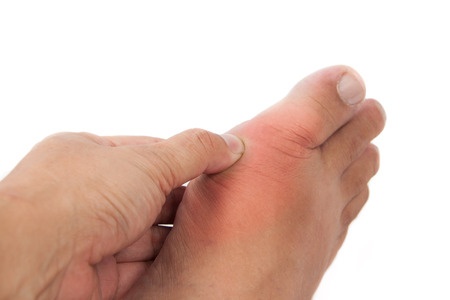
Swelling is one of the simplest signals our bodies use to let us know that something might be going on in the area where the swelling is located. It tends to develop rather rapidly, and most of the time, it is very noticeable. Swelling might even present with a slight change in skin color. However, swelling, which may also be referred to as edema, can be a little tricky to understand. In some cases, swelling can be somewhat expected, like in elderly individuals with weaker circulatory systems or in those who recently suffered an acute injury. On the other hand, swelling may be the result of an underlying medical problem in the organs that help regulate our fluid levels, such as the heart, liver, or kidney.
Swelling can affect any part of the body, but here are some of the most common reasons for swelling in the legs, ankles, and feet:
- Sitting (on an airplane, in a car, at the office, etc.) or standing for long periods of time
- Circulation problems, typically involving the veins
- A recent surgical procedure
- An injury or a burn
- Allergies and other environmental causes, like insect bites or sunburn
- Menstruation and pregnancy
- Certain medications
- Heart, liver, or kidney failure
- Imbalances in certain nutrients or hormones
Fortunately, there are several steps you can take to reduce swelling when it occurs or prevent it altogether. One of the easiest fixes is to elevate the affected extremity so that it is above the level of the heart. It can also be prevented by taking periodic breaks from sitting to walk around. To this end, exercise and diets low in sodium help regulate bodily fluids. Finally, constricting clothes have the ability to restrict circulation.
Context is often important in understanding the seriousness of swelling. If you rolled your ankle during a run, it is to be expected. If it is recurring and is accompanied by other symptoms, you might want to consult a board-certified podiatrist like Dr. Ryan L. D’Amico. At Syracuse Podiatry, located in Fayetteville, New York, Dr. D’Amico can take a closer look at your swelling, reduce it, and determine if there are other health issues in play. For expert treatment for diabetic wounds, plantar fasciitis, and more, contact us or call us today at (315) 446-3668!
